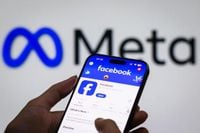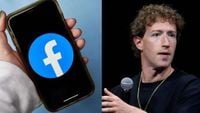In a revealing look at the internal struggles of Meta, newly released documents highlight CEO Mark Zuckerberg’s growing concerns over Facebook’s declining cultural relevance. According to a report from TechCrunch, internal emails from April 2022, which emerged during the company’s ongoing antitrust trial, show that even as user engagement remains steady, Zuckerberg fears the platform is losing its influence in today’s rapidly evolving digital landscape.
During the trial, which is now in its second week, the public got a glimpse into the candid discussions among Meta executives regarding Facebook’s waning appeal, particularly among younger users. Zuckerberg expressed that although the app’s engagement metrics are stable, its cultural relevance is diminishing quickly. He warned that this trend could indicate deeper issues that might affect Facebook’s long-term viability.
One of the primary concerns raised in these internal communications is Facebook’s reliance on its traditional “Friends” model, which many executives now deem outdated. Zuckerberg noted that “friending feels out of vogue right now for at least a few reasons.” He cited stale friend connections and the cumbersome nature of sending friend requests as significant barriers to user engagement.
In a bold suggestion, Zuckerberg floated the idea of completely wiping users’ friend lists to allow them to start anew. “One potentially crazy idea is to consider wiping everyone’s graphs and having them start again,” he stated. However, he recognized the considerable risks involved, warning that many users might not rebuild their networks, leading to decreased engagement. If Meta were to pursue this radical approach, Zuckerberg suggested testing it in a smaller market first to gauge its effectiveness.
As of 2025, Meta is still grappling with how to restore Facebook’s cultural relevance. In a January earnings call, Zuckerberg revealed that the company’s focus for the year would be to revive the spirit of “OG Facebook.” This initiative includes plans for a redesigned Friends tab aimed at enhancing user experience and re-establishing meaningful connections.
Despite these efforts, Meta faces significant challenges in adapting Facebook to meet modern user preferences. The internal emails suggest a potential shift toward a “follow-first” model, similar to platforms like Instagram, TikTok, and X, which prioritize following over direct friend connections. Such a change aims to modernize the platform without alienating its long-time users.
As the social media landscape continues to evolve, platforms that prioritize creator-focused content are gaining traction, leaving Facebook at risk of becoming obsolete. Zuckerberg’s acknowledgment of the platform’s struggles reflects a broader concern within Meta about remaining competitive in a market increasingly dominated by newer, more engaging platforms.
In a world where social media dynamics are shifting rapidly, Facebook’s challenges cannot be ignored. The company is under increasing pressure from regulatory authorities over its competitive practices, which adds another layer of complexity to its efforts to regain relevance.
Meta has been actively defending itself against accusations of unfair competition practices, which have intensified scrutiny on its business operations. The ongoing antitrust trial has revealed not only internal anxieties about Facebook’s future but also the external pressures the company faces in maintaining its market dominance.
In conclusion, as Meta navigates the turbulent waters of social media evolution, the future of Facebook hangs in the balance. With Zuckerberg’s candid reflections on the platform’s challenges and the company’s efforts to modernize, the question remains: can Facebook reclaim its status as a cultural powerhouse in an era dominated by new competitors?




